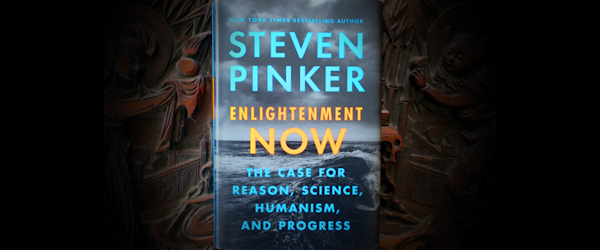

Why stay in one town instead of chasing better opportunities? Why feel compelled to sacrifice your own well-being to care for your profoundly disabled child or fragile, dying grandparent, when you would never do the same for a stranger? And yet, psychologically and philosophically, those attachments are as central to human life as the individualist, rationalist, universalist values of classic Enlightenment utilitarianism. Our local, particular connections to just one specific family, community, place, or tradition can seem irrational. The weakness of the book is that it doesn’t seriously consider the second part of the conversation-the human values that the young woman from the small town talks about. At a moment when those values are under attack, from the right and the left, this is a very important contribution.

He makes his case with masses of data, compelling arguments, and considerable eloquence. Pinker is a psychology professor at Harvard and a wide-ranging public intellectual, and his book is an extended brief for liberal Enlightenment values. The strength of Enlightenment Now, Steven Pinker’s new book, is that it articulates the first part of this conversation. It expresses the tension between the global and the local, modernity and tradition, professional opportunity and family ties, the people who leave the place where they grew up and the people who stay. People in many walks of life, across the country and around the world, are having this conversation. And this discussion doesn’t apply only to scientists. Colleagues in the Midwest and the South describe exactly this kind of conversation, and I’ve had similar talks even in cosmopolitan Berkeley. If you do, they almost certainly won’t be able to grow up with their grandparents. You’ll have to wait to have kids, and you may not have them at all. You’ll be separated from your partner for long stretches of time. You’ll move around from place to place unpredictably, from college to graduate school to postdoc research to professorship, until you’re 40 or so.


The honest answer? “If you join us, the chances are very slim that you’ll end up living in your hometown. My family and friends are all nearby, and I’d like my kids to live in my community and take part in the same traditions I grew up with. My parents are looking forward so much to being grandparents, and my own grandparents need me to look after them. I have a boyfriend who also wants to be a scientist, and I’d like to get married and have a bunch of kids here soon. The young woman replies, “That sounds fantastic! But there’s just one thing. Check out more from this issue and find your next story to read.


 0 kommentar(er)
0 kommentar(er)
